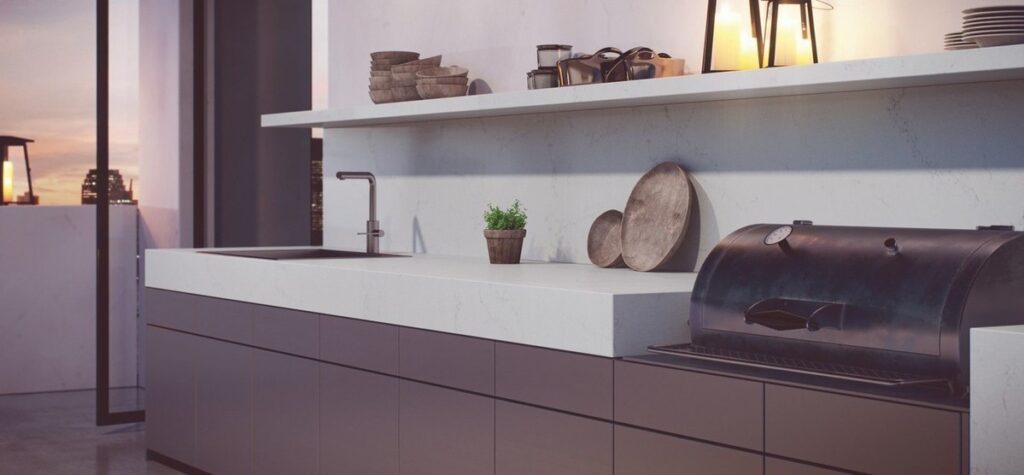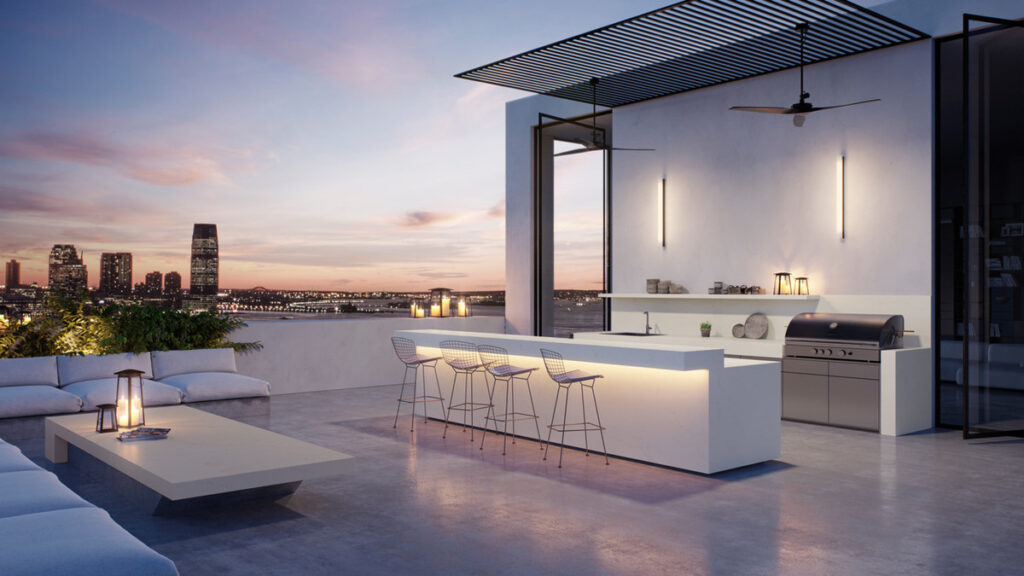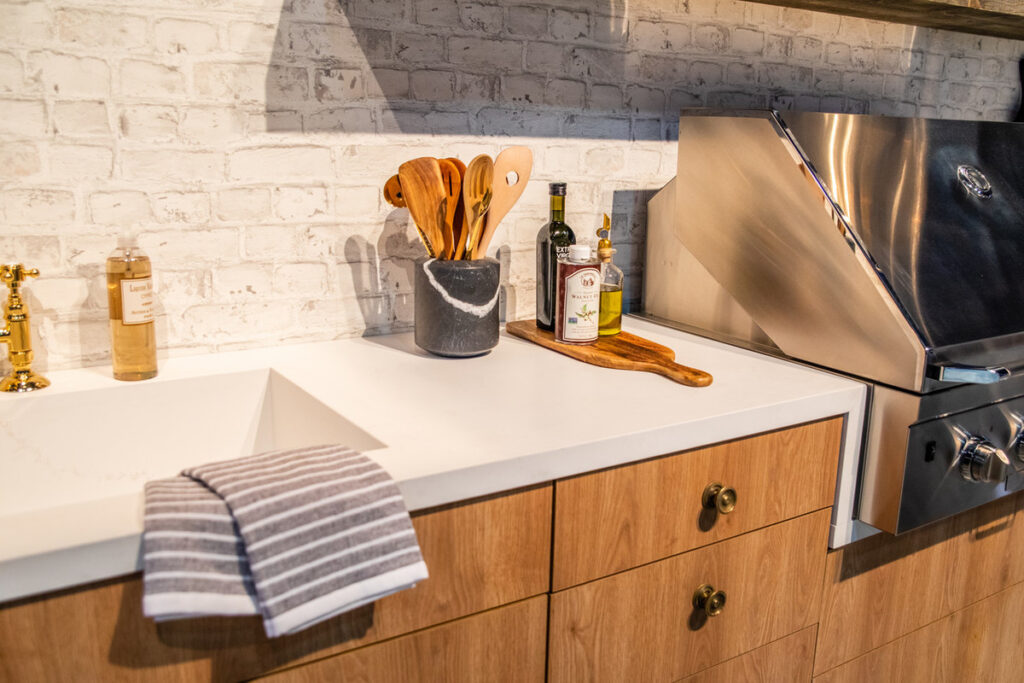Outdoor Quartz Countertop
4 min read
Quartz is among the most popular indoor countertop materials. But is it any good for outdoor use? The simple answer is that it depends. Most quartz countertop manufacturers only produce surfaces meant for indoor use. If you use these surfaces outside, UV rays will cause them to fade and become weaker over time.

At Caesarstone, however, we’ve developed a line of quartz countertops that can be safely used outdoors. Our Outdoor Quartz offers these benefits:
Our outdoor quartz countertops are the only UV certified quartz surfaces on the market. In other words, you won’t find another surface capable of withstanding exposure to direct sunlight quite like our outdoor quartz.
Our outdoor quartz countertops are also resistant to almost any type of damage, including scratching and chipping. This makes our quartz countertops in outdoor kitchens a top choice, especially for entertaining purposes.
With large parties and family get-togethers, a food or red wine spill is almost inevitable. With Caesarstone Outdoor quartz countertop, these accidents don’t have to result in your surface becoming stained. As long as you clean the spill promptly, you’ll be in the clear since quartz is less absorbent than many other countertop materials (including natural stone).
High durability also makes quartz ideal for homes with small children because you won’t have to worry about cracks or dents.
Some wear is common after many years, but quartz gives you the most durable option for your new outdoor kitchen.
Designing an outdoor kitchen is easy with our outdoor quartz countertops because they come in three versatile designs that will hold up against rain, snow, or shine.

One of the best things about quartz is that it requires virtually no maintenance. You don’t need harsh chemicals to keep it clean on a daily basis. Mild soap and water will often do the trick. Unlike granite, quartz does not have to be resealed, or refinished like wood.
Once your quartz is installed, you only need to wipe it down when you are done cooking and eating. For tougher stains, use Soft Scrub with Bleach. This makes our outdoor quartz especially perfect for outdoor living areas because you won’t have to worry about resealing it or all the upkeep that comes with other kitchen counter materials.
Quartz can naturally repel dirt and grime because it is nonporous. Its smooth surface doesn’t allow harmful bacteria and germs to grow. Countertops outside are more likely to get dirtier than any indoor surface.
Like with spills, any visible dirt can be wiped away with soap and water. You do not need to disinfect the area. It is also okay if you delay cleaning the counters because germs from the dirt will not be able to set in and absorb into the countertop.
The nonporous quality also keeps it resistant to humidity and water damage. Outdoor Quartz is safe to use even in hot and tropical environments.
Even though quartz is extremely low maintenance, there are some basic tips you can follow to keep your quartz looking new. This will ensure that the colours and designs stay vibrant for as long as possible.

Quartz is heat resistant, but high heat can still damage the material. If you use heavy cooking objects or cast iron, place a trivet underneath the pot before placing it onto the counter.
Too much heat will cause discoloration, cloudiness, and spotting. This is partly because the heat will begin to melt the resins that bind the quartz polymers together under the surface.
Quartz is made to withstand most weather elements like rain, snow, and humidity. Most weather will also not stain or discolour the quartz. However, be sure to secure loose objects (including pots and pans) if you live in an area where high winds are common.
Although quartz is the number one choice for outdoor kitchens, you may be wondering what other choices are available to you and how they compare to quartz. Another popular choice for outdoor kitchens is granite or porcelain.
Granite is naturally more heat resistant and will not change appearance in sunlight as quickly. However, granite is more susceptible to germs and stains. Spills will need to be cleaned promptly and washed thoroughly. Granite also needs to be resealed every few years. If you don’t keep it resealed, the inside and the outside of the slab can become damaged.
When it comes to your outdoor kitchen, you should choose a surface that is low maintenance and durable. With quartz, you can simply clean the counters with soap and water whenever you use them. As long as you clean them after each use, they will last for years and years to come.
Quartz will also naturally repel any germs or spills that could occur when you are cooking or hosting an event. This makes the quartz a safe surface for food prep and for children to be around.
Avoiding direct sunlight and extreme weather conditions are key to ensuring that your quartz countertops in your outdoor kitchen will be beautiful for as long as you own your home.
{{ subtitle }}
{{ i.desc }}
{{ subtitle }}
{{ subtitle }}